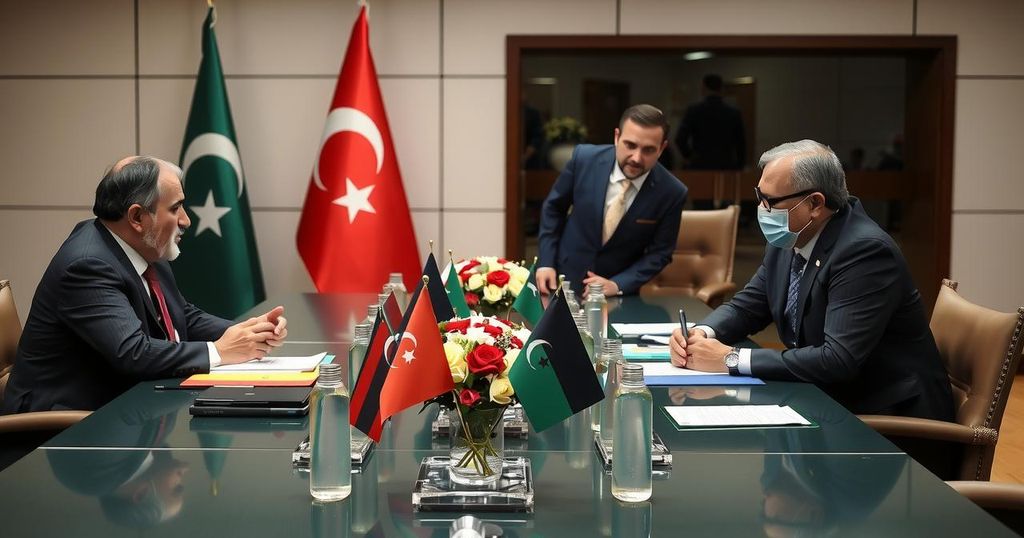Global news
AFRICA, AHMED AL - SHARAA, AHMED BIN ABDULAZIZ AL - KHALIFA, ASIA, BAHRAIN, BNA, DIPLOMACY, DIPLOMATIC RELATIONS, EUROPE, HAMAD, INTERNATIONAL RELATIONS, KHALIFA HAFTAR, LEAGUE, LIBYA, PAKISTAN, REGIONAL SECURITY, SANA, SHEIKH AHMED BIN ABDULAZIZ AL - KHALIFA, SYRIA, TRIPOLI, UNITED NATIONS
Fatima Khan
0 Comments
Libyan Official Engages in Key Discussions with Syria’s New Leadership
A Libyan official met with Syria’s new leader to discuss diplomatic ties, energy cooperation, and migration issues. Walid Ellafi emphasized support for Syria’s transition and the importance of security and military collaboration. Migration remains a pivotal concern as many Syrians seek refuge in Libya.
On Saturday, a senior official representing Libya’s UN-recognised government convened with Syria’s newly appointed leader, Ahmed al-Sharaa, to discuss critical issues including diplomatic relations, energy collaboration, and migration challenges. Libyan Minister of State for Communication and Political Affairs, Walid Ellafi, expressed strong support for the Syrian government amidst its transitional phase, emphasizing the necessity of coordinated efforts particularly in security and military domains. The discussions also encompassed economic cooperation in energy and trade, alongside the pressing issue of illegal immigration, particularly relevant given the ongoing migration crisis faced by Syrian refugees since 2011.
The meeting between Libyan and Syrian officials comes at a pivotal moment for both nations. Libya has been undergoing a complex political struggle, with its authority divided between a UN-recognised government in Tripoli and a rival eastern administration backed by Khalifa Haftar. Meanwhile, Syria has recently transitioned to new leadership following the overthrow of President Bashar al-Assad, prompting a flurry of diplomatic engagements as regional actors seek to foster connections with the newly established government. The discussion highlights Libya’s intention to enhance its diplomatic ties in a region fraught with challenges related to migration and energy needs.
In summary, the talks between Libya’s UN-recognised government and Syria’s new leadership mark a significant step in re-establishing diplomatic relationships. Both nations are poised to collaborate on essential issues, addressing migration concerns and exploring energy partnerships while ensuring security cooperation. This meeting indicates a broader regional willingness to navigate the complexities of a post-conflict landscape and enhances the possibility of future stability and collaboration.
Original Source: www.barrons.com




Post Comment